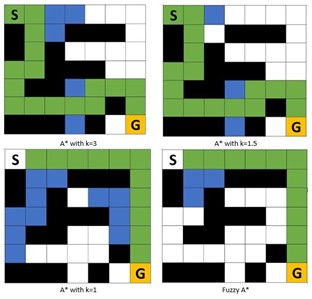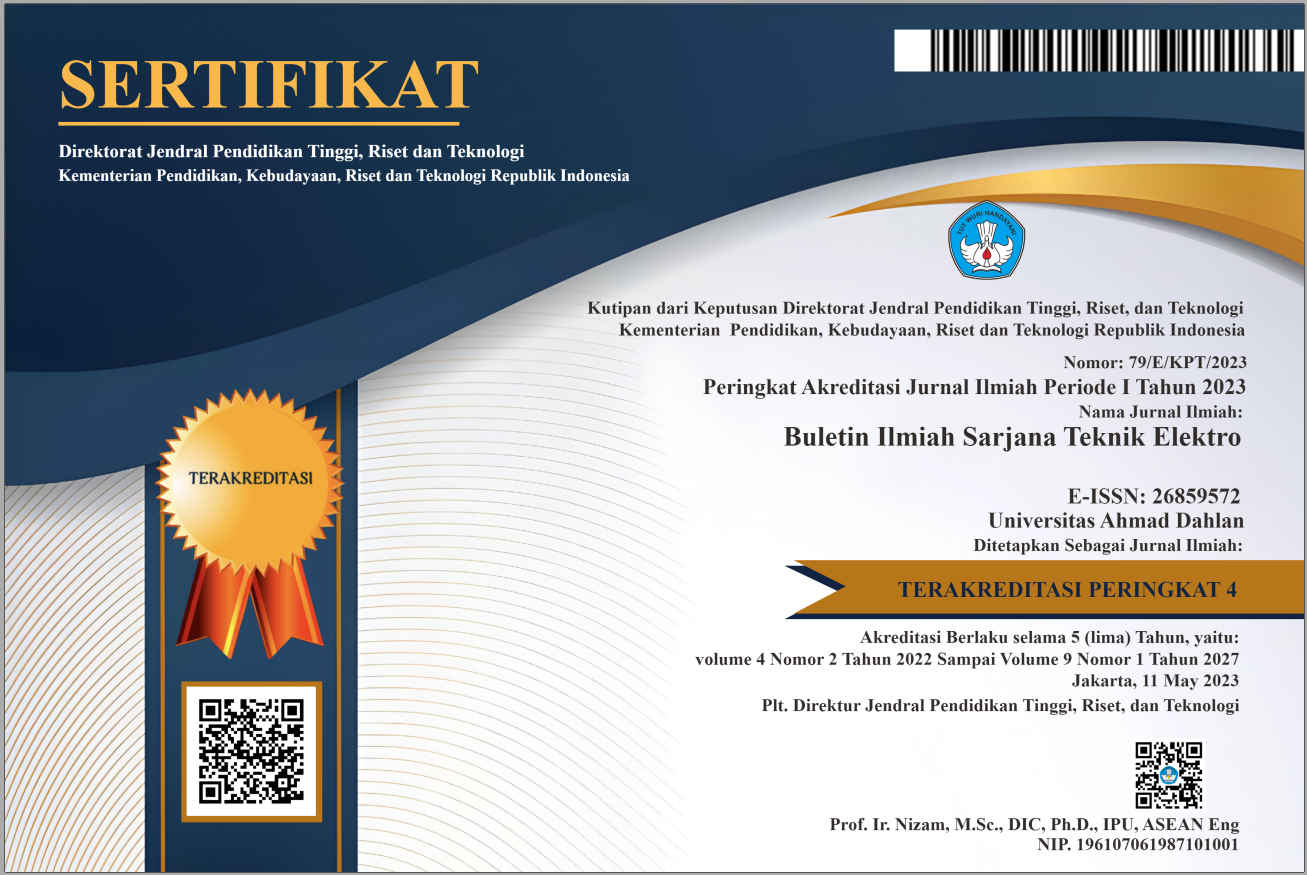Fuzzy A* for optimum Path Planning in a Large Maze
DOI:
https://doi.org/10.12928/biste.v5i4.9394Keywords:
Fuzzy, A*, Path Planning, Maze, OptimizationAbstract
Traditional A* path planning, while guaranteeing the shortest path with an admissible heuristic, often employs conservative heuristic functions that neglect potential obstacles and map inaccuracies. This can lead to inefficient searches and increased memory usage in complex environments. To address this, machine learning methods have been explored to predict cost functions, reducing memory load while maintaining optimal solutions. However, these require extensive data collection and struggle in novel, intricate environments. We propose the Fuzzy A* algorithm, an enhancement of the classic A* method, incorporating a new determinant variable to adjust heuristic cost calculations. This adjustment modulates the scope of scanned vertices during searches, optimizing memory usage and computational efficiency. In our approach, unlike traditional A* heuristics that overlook environmental complexities, the Fuzzy A* employs a dynamic heuristic function. This function, leveraging fuzzy logic principles, adapts to varying levels of environmental complexity, allowing a more nuanced estimation of the path cost that considers potential obstructions and route feasibility. This adaptability contrasts with standard machine learning-based solutions, which, while effective in known environments, often falter in unfamiliar or highly complex settings due to their reliance on pre-existing datasets. Our experimental framework involved 100 maze-solving trials in diverse maze configurations, ranging from simple to highly intricate layouts, to evaluate the effectiveness of Fuzzy A*. We employed specific metrics such as path length, computational time, and memory usage for a comprehensive assessment. The results showcased that Fuzzy A* consistently found the shortest paths (99.96% success rate) and significantly reduced memory usage by 67% and 59% compared to Breadth-First-Search (BFS) and traditional A*, respectively. These findings underline the effectiveness of our modified heuristic approach in diverse and challenging environments, highlighting its potential for real-world pathfinding applications.

Published
How to Cite
Issue
Section
License
Copyright (c) 2023 Gregorius Airlangga

This work is licensed under a Creative Commons Attribution-ShareAlike 4.0 International License.
Authors who publish with this journal agree to the following terms:
- Authors retain copyright and grant the journal right of first publication with the work simultaneously licensed under a Creative Commons Attribution License that allows others to share the work with an acknowledgment of the work's authorship and initial publication in this journal.
- Authors are able to enter into separate, additional contractual arrangements for the non-exclusive distribution of the journal's published version of the work (e.g., post it to an institutional repository or publish it in a book), with an acknowledgment of its initial publication in this journal.
- Authors are permitted and encouraged to post their work online (e.g., in institutional repositories or on their website) prior to and during the submission process, as it can lead to productive exchanges, as well as earlier and greater citation of published work (See The Effect of Open Access).
This journal is licensed under a Creative Commons Attribution-ShareAlike 4.0 International License.


